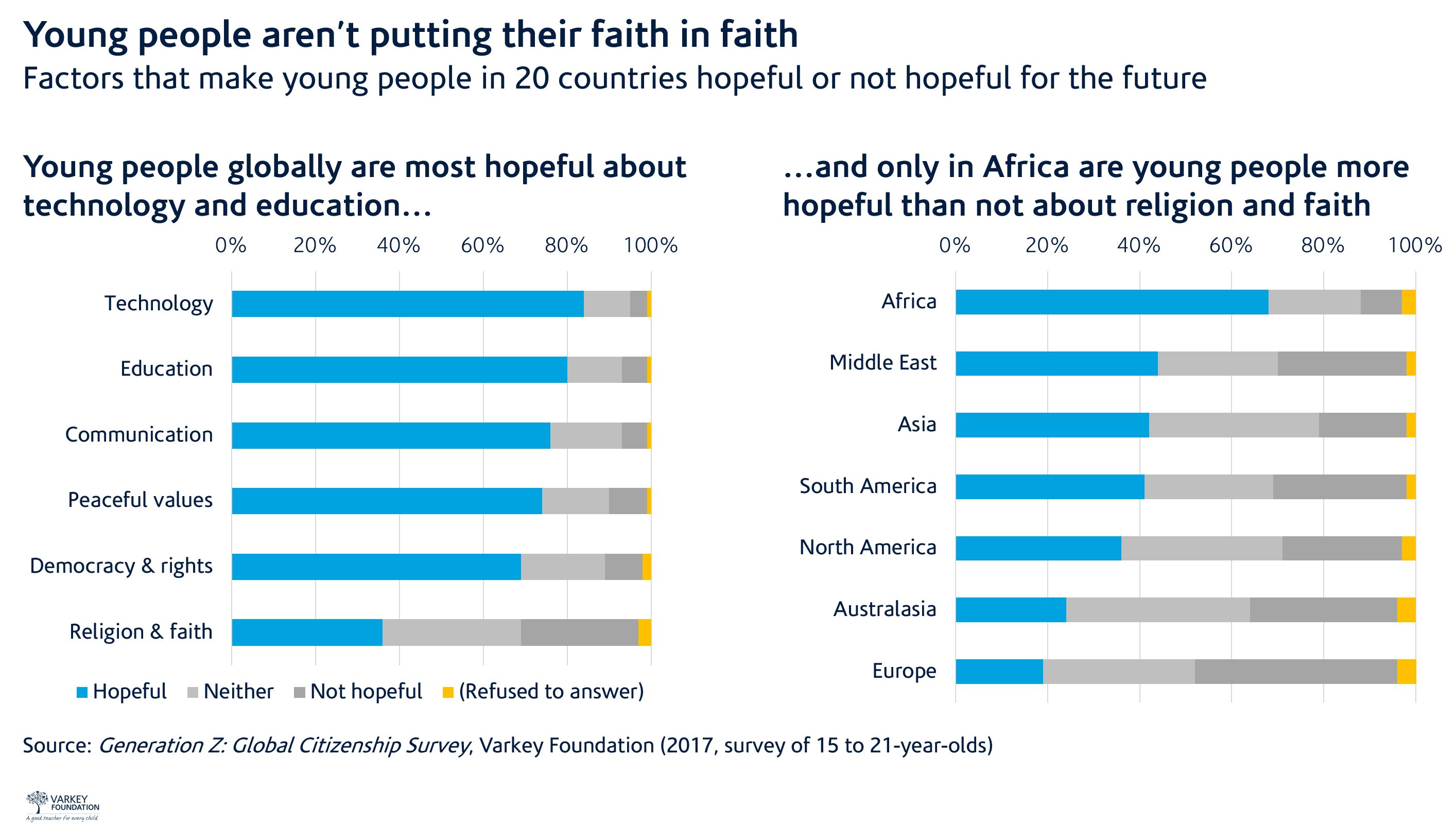PHOTOGRAPH © THE VARKEY FOUNDATION
Research shows that young people worldwide are sceptical about the influence of religion and faith
BY THE VARKEY FOUNDATION

When it comes to the future, young people are putting their faith in technology, not religion. Research by the Varkey Foundation has found that while eight in 10 young people say that advances in technology give them hope for the future, only about one in four say the same about the influence of religion and faith.
The findings, first published in 2017, are part of a comprehensive survey commissioned by the Varkey Foundation into the attitudes of young people which polled 20,000 15 to 21-year-olds in 20 countries. The survey found young people to be largely hopeful about the major socio-economic factors reshaping global society, from advances in technology and telecommunications, to rising education levels and the spread of democracy and human rights. Across the world, young people overwhelmingly singled out technology, including advancements in the fields of medicine, renewable energy and computing power, as the one factor that made them most hopeful for the future.
However, the research also found young people worldwide to be significantly more ambivalent about religion. Just 36% of young people surveyed said that the influence of religion and faith made them hopeful for the future, compared with 28% of young people who said they were not hopeful about its influence and 33% who said they were neither hopeful nor lacking hope. The data show young people to be more divided over the influence of religion and faith than any other factor.
The research also exposed significant differences in attitudes about religion and faith across the world. In Sub-Saharan Africa, seven in 10 young people said that they were positive about the influence of religion and faith for the future, compared with two in 10 young people in Europe. Religiosity itself was also a crucial dividing line, with 67% of religious young people positive about the influence of religion and faith for the future compared with just 10% of non-religious young people.
Young people’s attitudes toward religion and faith were also shaped by the education level of their parents. Just 36% of young people whose parents had attended secondary school said that the influence of religion and faith gave them hope for the future, compared with 49% of young people whose parents had only attended primary school. Young people, then, may well have hope for the future – but this is not well matched by their hope for religion.
